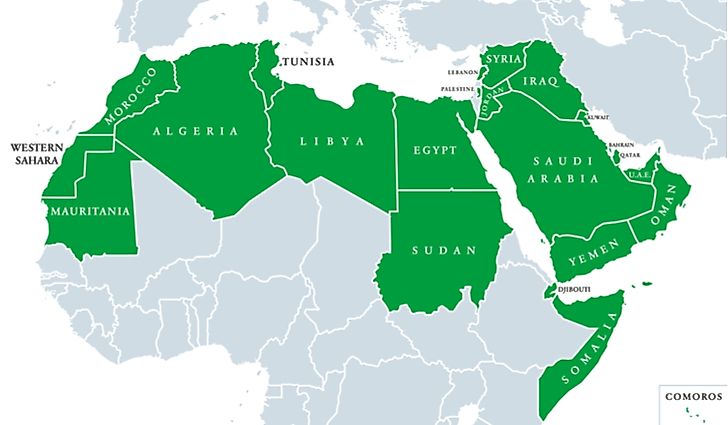Arabic – Modern Standard Arabic (MSA)
Arabic: WHAT/WHERE/HOW/WHY
WHAT IS ARABIC?
Arabic is a Semitic language closely associated with Aramaic and, Hebrew. The oldest versions of Arabic dates back to the 1st century CE, possessing a strong poetic tradition during pre-Islamic times. With the rise of Islam in the 7th century, Arabic became more grammatically codified as the Qur’an (the holy text for Muslims) is written in Arabic and is considered the language of the Islam.
WHERE IS ARABIC SPOKEN?
Today Arabic is spoken by some 420 million people worldwide. The major Arabic speaking countries are located in the Arab Peninsula (Saudi Arabia, Iraq, United Arab Emirates, Qatar, Kuwait, Oman, Yemen and Bahrain.) North Africa (Egypt, Libya, Tunisia, Sudan, Mauritania, Algeria, Morocco) as well as the Levant (Jordan, Syria, Lebanon, Palestine). Somalia also contains a strong Arabic speaking population. See map below for more places!

HOW IS IT SPOKEN?
There are three types of Arabic used today: 1-Modern Standard Arabic (MSA) also known as Fus-ha ( considered the intellectual level of Arabic. This is used for News Broadcasts (like Al-Jazeera) or to deliver conference papers. 2.-Qur’anic or Classical Arabic (language used in religious context). 3.-Colloquial Arabic (everyday speaking): this version of Arabic changes from place to place and some dialects can have very different pronunciations. Take a look at the different ways to say “I don’t know what to do” across the Arab world!

WHY LEARN? FUN FACTS ABOUT ARABIC
- Arabic Roots are Central: Most Arabic vocabulary are made up of 3 letter roots. If you know the correct root you can produce all sorts of different words from that root. For example Ka-Ta-Ba refers to words that surround writing. If you know all the different ways to modify the root you can come up with the word without ever necessarily needing to look them up (indeed most exhaustive Arabic dictionaries are list by root not by individual words). Thus we can make “kataba” (he wrote), taktub (she writes), kaatib (writer) kitaab (book), maktaba (Library), maktab (office).
- The lion is one of the most important animals in Islam. Thus, there are over 300 words in Arabic for lion (some are literal and others more encapsulate behaviors/qualities). Check out a few below!
References Used:
- https://lsa.umich.edu/middleeast/languages/languages/example-1.html
- https://archive.org/details/Arabic-English-dictionary/page/n9/mode/2up?view=theater
- https://en.wikipedia.org/wiki/Modern_Standard_Arabic
- https://www.qfi.org/
- https://en.wikipedia.org/wiki/Quran#Translations
- https://istizada.com/complete-list-of-arabic-speaking-countries-2014/
- https://en.wikipedia.org/wiki/Arabic_poetry#:~:text=Arabic%20poetry%20(Arabic%3A%20%D8%A7%D9%84%D8%B4%D8%B9%D8%B1%20%D8%A7%D9%84%D8%B9%D8%B1%D8%A8%D9%8A,is%20believed%20to%20predate%20that.&text=Also%2C%20in%20rhymed%20poetry%2C%20every,(q%C4%81fiyah)%20throughout%20the%20poem.
- https://www.britannica.com/topic/Arabic-language
- https://en.wiktionary.org/wiki/%D8%A3%D8%B3%D8%AF

